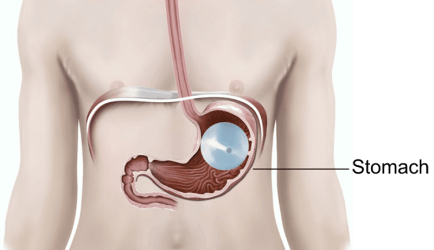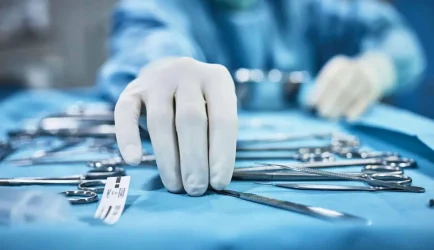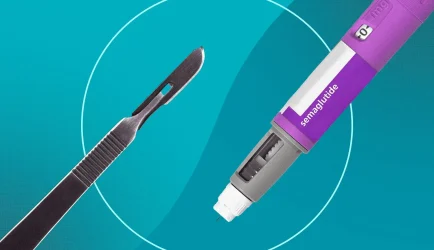Question 1 . What is Gastric Bypass Surgery?
Gastric bypass surgery, also known as Roux-en-Y gastric bypass, is a type of bariatric (weight loss) surgery that involves altering the structure of the stomach and small intestine to promote weight loss. The primary goal of gastric bypass surgery is to reduce the size of the stomach and reroute the digestive tract in a way that restricts the amount of food that can be eaten and the amount of nutrients the body absorbs.

The procedure involves the following steps:
1. Stomach Reduction: The surgeon creates a small pouch at the top of the stomach using staples or a plastic band. This pouch has a much smaller capacity than the original stomach, which limits the amount of food that can be consumed.
2. Diverting the Small Intestine: The small intestine is divided and the lower portion is connected to the small stomach pouch. The upper portion of the small intestine is then reattached farther down the intestine, effectively bypassing a significant portion of the stomach and the upper part of the small intestine. This diversion reduces the surface area available for nutrient absorption, which leads to decreased calorie and nutrient intake.
Gastric bypass surgery achieves weight loss through two main mechanisms:
- Restriction: The smaller stomach pouch limits the amount of food that can be eaten in a single sitting, leading to a feeling of fullness and reduced appetite.
- Malabsorption: By bypassing a portion of the small intestine, the body absorbs fewer calories and nutrients from the food consumed. This contributes to weight loss.
Gastric bypass surgery is typically recommended for individuals who are severely obese and have also developed medical conditions like diabetes, sleep apnoea or metabolic syndrome.
It’s important to note that gastric bypass surgery is a major surgical procedure with potential risks and complications. It requires careful evaluation and consideration by a medical professional. Patients undergoing this surgery also need to make significant lifestyle changes to ensure the surgery’s long-term success, including adopting healthy eating habits and maintaining an active lifestyle.
As with any medical procedure, the specific details of the surgery, risks, benefits, and expected outcomes should be discussed thoroughly with a healthcare provider before making a decision.
Question 2 : What is Mini Gastric Bypass surgery?
The mini-gastric bypass (MGB) or OAGB (One anastomosis Gastric Bypass) is a type of weight loss surgery that is similar in concept to the traditional Roux-en-Y gastric bypass, but it involves a simpler and shorter surgical procedure. Like the Roux-en-Y gastric bypass, the mini-gastric bypass aims to achieve weight loss through a combination of restriction and malabsorption.

Here’s how the mini-gastric bypass procedure generally works:
1. Stomach Pouch Creation: The surgeon creates a smaller stomach pouch by dividing the stomach, similar to the first step of the Roux-en-Y procedure. However, in the mini-gastric bypass, a single longer staple line is used to create a tube-like pouch.
2. Small Intestine Attachment: The surgeon then connects the newly created stomach pouch to a lower part of the small intestine, effectively bypassing a portion of the stomach and a larger section of the small intestine. This rerouting of the digestive tract reduces nutrient absorption and calorie intake.
The mini-gastric bypass (MGB) is considered a simpler procedure compared to the traditional Roux-en-Y gastric bypass because it involves fewer connections and typically takes less time to perform. However, like any surgical procedure, it carries its own set of risks and potential complications.
Some potential benefits of the mini-gastric bypass include:
- Shorter surgery time
- Fewer connections and rerouting of the intestines
- Potentially fewer incisions, leading to smaller scars
- Better weight loss and diabetes outcomes in comparison to traditional gastric bypass. (According to studies)
However, there are also concerns and criticisms associated with the mini-gastric bypass, such as potential issues with bile reflux, nutritional deficiencies, and long-term complications. Because the mini-gastric bypass is a relatively newer procedure compared to the traditional gastric bypass, long-term data on its safety and effectiveness may be limited compared to more established procedures.
Question 3 : Which Bypass is Better – Mini Gastric Bypass or Roux-en-Y Gastric Bypass?
Watch this video to know which procedure is more suited for you.
If you want to know more and have an obligation free appointment to get more information then book an appointment with our patient advisor here – Click here to book































